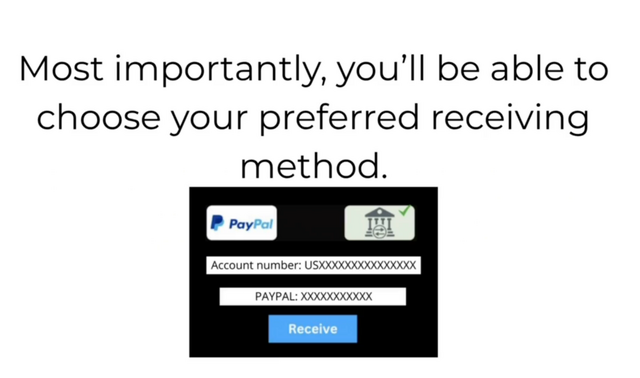Navigating the L26 Account Landscape: A Critical Review of User Engagement Tactics
In today's interconnected digital world, the way services interact with potential and existing users is crucial. The "L26 Account" appears to be a focal point for a series of email communications designed to engage users through various, often high-pressure, tactics. This review will delve into the perceived "features" and "benefits" of engaging with L26 Account as presented through these messages, critically examining the underlying strategies, potential risks, and the overall value proposition for users. It's essential for anyone encountering these communications to understand the implications of their engagement for online security and data protection.
Key "Features" and Engagement Strategies
Based on the provided email context, communications related to L26 Account employ a multifaceted approach to user engagement, which can be categorized into several "features" from the perspective of the sender:
- Urgency & Fear Tactics: A significant portion of the messages leverage extreme urgency and threats, such as "Your funds are frozen," "Imminent sanctions," and "dangerous flaw detected." This is designed to prompt immediate action without critical thought, aiming to bypass logical reasoning in favor of emotional response.
- Promises of Rewards & Bonuses: Contrasting the fear, many emails dangle enticing benefits like "big welcome gift," "compensation bonus," "special lot," "seniority bonus amounting to $300," and "winnings." These aim to appeal to the user's desire for unexpected financial gain or recognition.
- Personalized & Direct Communication: Emails frequently use placeholders like %FIRSTNAME% and %EMAIL%, creating a false sense of a personal relationship and tailored communication. This can make the messages appear more legitimate and harder to dismiss.
- Account Security & Data Protection Pretext: Some communications specifically mention "Corrupted Data" and the need to "secure your data as soon as possible." This tactic preys on common online anxieties about privacy and financial security, positioning the sender as a helpful entity.
- Authority & Legitimacy Facade: Senders often use seemingly official titles like "Your assistance," "Juliette M. (payments and refunds)," or "Bastien P. (Customer Support Manager)," or invoke entities like "Hypermarchés Europe™" and "Consumer Association." This attempts to lend credibility to the messages.
- Ambiguous Calls to Action: The primary call to action in nearly all emails is a generic "Click here" or similar phrasing. These links are presented as solutions to problems or pathways to rewards, but their true destination and purpose are deliberately obscured.
Problems It Appears to Solve (and the Reality)
From the user's perspective, these communications related to L26 Account aim to solve immediate, high-stakes problems or offer significant benefits:
- "Unblocking Frozen Funds" / "Avoiding Sanctions": The emails promise quick resolutions to dire financial situations. In reality, legitimate services communicate fund freezes or sanctions through official channels with clear, verifiable instructions, not via urgent, generic emails.
- "Securing Personal and Bank Data": While data security is a genuine concern, these emails present clicking an arbitrary link as the solution. This is a common phishing tactic that can lead to data compromise rather than protection.
- "Collecting Winnings or Bonuses": The allure of free money is powerful. However, unsolicited offers of large sums, gifts, or compensation without clear context are almost universally red flags for scams, not genuine opportunities.
- "Asserting Consumer Rights": Messaging about retracting online purchases for refunds plays on legitimate consumer protections. However, directing users to an unknown "secure link" for this purpose is highly suspicious and could expose them to risks.
Target Audience
The tactics employed by L26 Account communications are designed to appeal to a broad range of internet users, particularly those susceptible to:
- Fear and Urgency: Individuals concerned about their finances, account security, or data privacy.
- Financial Opportunity: Those looking for extra income, unexpected winnings, or bonuses.
- Curiosity: Emails with intriguing or accusatory subject lines can draw in users who simply want to know more.
- Less Tech-Savvy Users: Individuals who may not be fully aware of common scam detection methods.
Ease of Engagement, Performance, and Design
The "ease of use" from the perspective of these communications is deceptively simple: users are merely asked to "click here." This low barrier to entry is a core design choice for maximum interaction. The "performance" of these campaigns is measured by their ability to generate clicks, not by delivering actual value to the recipient. The "design" of these emails is not about aesthetics, but about psychological manipulation – using emotionally charged language, strong calls to action, and a fabricated sense of urgency or reward. They are often short, direct, and designed to bypass critical thinking in the interest of immediate engagement.
Negative Aspects & Value for Money
When evaluating L26 Account based purely on these communications, the negative aspects overwhelmingly outweigh any perceived positives:
- High Security Risk: The primary objective of these emails appears to be to trick users into clicking links that could lead to phishing websites, malware downloads, or other malicious activities designed to steal personal or financial information.
- Deceptive and Manipulative Tactics: The reliance on fear, false urgency, and exaggerated promises creates a highly unethical and potentially harmful communication strategy. There is a complete lack of transparency regarding the true nature of L26 Account or the services it supposedly offers.
- No Tangible Value: There is no evidence within the provided context that engaging with L26 Account via these links offers any legitimate benefit, product, or service. The "value for money" is effectively negative, as users stand to lose time, privacy, or even money.
- Privacy Concerns: These unsolicited emails raise significant online privacy concerns. How did the sender obtain the recipient's email address? Engagement might lead to more unwanted communications.
Overall Recommendation
Based on the provided email examples, interaction with "L26 Account" as presented through these communications is highly ill-advised. The pattern of urgent, threatening, or overly enticing messages, combined with ambiguous calls to action, is a hallmark of digital fraud and deceptive marketing. Users should exercise extreme caution, verify the legitimacy of any sender independently, and refrain from clicking on unsolicited links. Prioritize digital safety and critical evaluation over impulsive responses to such persuasive but problematic messages.








